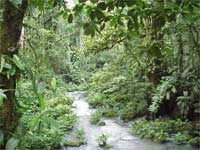Just In
- 5 hrs ago

- 5 hrs ago

- 9 hrs ago

- 15 hrs ago

Don't Miss
- Finance
 FREE, FREE, FREE! 3:1 Bonus: Pharma Stock Hits Back-To-Back Upper Circuits; 500 Shares To Earn Rs 1,69,500
FREE, FREE, FREE! 3:1 Bonus: Pharma Stock Hits Back-To-Back Upper Circuits; 500 Shares To Earn Rs 1,69,500 - Sports
 Manchester City vs Chelsea LIVE Streaming: Where to Watch FA Cup Semi-Final in India, UK, USA and Other Countries
Manchester City vs Chelsea LIVE Streaming: Where to Watch FA Cup Semi-Final in India, UK, USA and Other Countries - Movies
 Pukaar Dil Se Dil Tak Promo: Sayli Salunkhe Impresses In First Video Of Sony TV Show, Details About Her Role
Pukaar Dil Se Dil Tak Promo: Sayli Salunkhe Impresses In First Video Of Sony TV Show, Details About Her Role - News
 Chinese President Xi Jinping Orders Biggest Military Reorganisation Since 2015
Chinese President Xi Jinping Orders Biggest Military Reorganisation Since 2015 - Education
 Exam Pressure Does Not Exist; Studying Punctually is Crucial; Says Aditi, the PSEB 2024 Topper
Exam Pressure Does Not Exist; Studying Punctually is Crucial; Says Aditi, the PSEB 2024 Topper - Automobiles
 Suzuki Swift Hatchback Scores 4 Star Safety Rating At JNCAP – ADAS, New Engine & More
Suzuki Swift Hatchback Scores 4 Star Safety Rating At JNCAP – ADAS, New Engine & More - Technology
 Dell Introduces AI-Powered Laptops and Mobile Workstations for Enterprises in India
Dell Introduces AI-Powered Laptops and Mobile Workstations for Enterprises in India - Travel
 Journey From Delhi To Ooty: Top Transport Options And Attractions
Journey From Delhi To Ooty: Top Transport Options And Attractions
Prince Charles' Rainforest Project

Two years ago, the heir to the throne set up the Prince's Rainforest Project with the backing of 18 corporations including Goldman Sachs and McDonald's to campaign against deforestation. Environmental groups including the World Wide Fund for Nature, Greenpeace and Friends of the Earth, along with the United Nations, have expressed concern at the clearing of jungles in Sumatra and Borneo to make way for palm oil plantations.
But, the world's cheapest cooking oil is also grown in Papua New Guinea and Colombia. Now, according to a report in The Independent, palm oil is present in five of products in Prince Charles' Duchy Originals range of organic groceries sold in British shops. The Independent disclosed the confirmed or suspected presence of palm oil in 43 leading brands, including Hovis bread, KitKats and Mars Bars.
Duchy
Originals
manufacturers
pour
palm
oil
into
its
toffee
biscuits,
beetroot
soup,
spinach
and
nutmeg
soup,
fresh
chicken
gravy
and
steak
and
ale
pie.
But,
according
to
a
spokesman
for
the
company,
"Currently
less
than
five
of
our
products
in
a
range
of
over
200
-
contain
palm
oil.
Duchy
Originals
only
uses
palm
oil
in
recipes
where
there
is
no
alternative,
and
then
only
in
minimal
quantities."
"We
have
worked
hard
over
the
past
year
to
eliminate
palm
oil
from
a
number
of
our
products
and
have
asked
our
producers
to
look
at
replacing
it
wherever
possible," he
added.
Only
two
per
cent
of
global
palm
oil
is
currently
certified
sustainable
by
the
Roundtable
on
Sustainable
Palm
Oil
(RSPO).
The
rest
-
including
supplies
from
newly-razed
forests
-
is
mixed
together
in
refineries.
At one stage, Duchy Originals' PR company stated it only required suppliers to be RSPO members, but Duchy Originals later clarified that supplies had to be RSPO-certified.
There is no proof, whatsoever, who buys these sustainable supplies because contracts are between manufacturers and suppliers. However, the first certified supplies only became available in November 2008, meaning that Duchy Originals palm oil would not have had the international guarantee of sustainability before then.
AGENCIES
-
 menPrince Charles Now King Charles III: Facts About The New King Of The United Kingdom
menPrince Charles Now King Charles III: Facts About The New King Of The United Kingdom -
 pulseWhat Happens After Queen Elizabeth II? Know About Secret Plans Leading To A State Funeral
pulseWhat Happens After Queen Elizabeth II? Know About Secret Plans Leading To A State Funeral -
 fashion trendsThe Crown: Elizabeth Debicki Recreates Princess Diana’s ‘Revenge Dress’ Moment; Why This Dress Is Iconic
fashion trendsThe Crown: Elizabeth Debicki Recreates Princess Diana’s ‘Revenge Dress’ Moment; Why This Dress Is Iconic -
 fashion trendsFlashback Friday: When Lady Diana Wore Yellow Overalls And How The Outfit Was Reimagined In The Crown
fashion trendsFlashback Friday: When Lady Diana Wore Yellow Overalls And How The Outfit Was Reimagined In The Crown -
 fashion trendsGolden Globes 2021: Did Emma Corrin Find A Connect Between Pierrot Clown And Lady Diana With Her Gown?
fashion trendsGolden Globes 2021: Did Emma Corrin Find A Connect Between Pierrot Clown And Lady Diana With Her Gown? -
 fashion trendsKaty Perry Makes A Floral Splash With Her Blue Dress At The British Asian Trust Event
fashion trendsKaty Perry Makes A Floral Splash With Her Blue Dress At The British Asian Trust Event -
 insyncWhen Prince Charles Car Was Attacked...
insyncWhen Prince Charles Car Was Attacked... -
 trends n styleLady Diana's Dress On Auction
trends n styleLady Diana's Dress On Auction -
 insync£150k Missing From Prince Charles' Charity
insync£150k Missing From Prince Charles' Charity -
 insyncMonty Python Starrer Pays Whooping 12 M Pounds In Divorce
insyncMonty Python Starrer Pays Whooping 12 M Pounds In Divorce -
 insyncRoyal Cheese From Blur Rocker!
insyncRoyal Cheese From Blur Rocker! -
 pulseNine Asian Women Declared Winners
pulseNine Asian Women Declared Winners


 Click it and Unblock the Notifications
Click it and Unblock the Notifications



